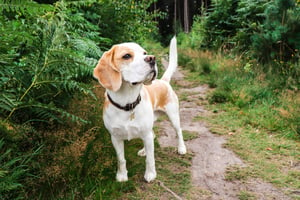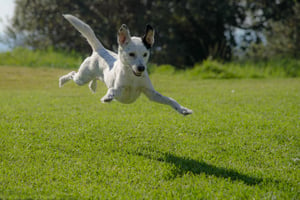Puppies are adorable and loving animals, but sometimes they can display aggressive behaviour. This...
How to Stop Your Puppy from Being Aggressive
Aggressive behaviour in puppies can be a source of worry for many dog owners. Fortunately, there are ways to help your puppy become less aggressive. This article looks at the reasons why puppies may become aggressive and provides advice on how to prevent and manage it.
Why Puppies Become Aggressive
Puppies can become aggressive for a variety of reasons, including fear, lack of socialisation, and feeling threatened. In some cases, aggressive behaviour can be a sign of an underlying medical condition. It is important to identify the cause of the aggression in order to manage it effectively.
Preventing Aggressive Behaviour in Puppies
The best way to stop your puppy from becoming aggressive is to prevent it from happening in the first place. This can be done by providing your puppy with positive, consistent training, socialising it with other dogs, and avoiding situations that may trigger aggressive behaviour.
Positive Training - Positive reinforcement is the best way to train your puppy, as it encourages desired behaviours and discourages unwanted ones. This can be done by rewarding your puppy with treats and praise when it behaves in the desired way.
Socialisation - Socialising your puppy with other dogs is important as it helps them to learn how to interact appropriately with other animals. It is best to start socialisation as early as possible, as this helps to prevent fear-based aggression.
Avoiding Triggers - If your puppy is exposed to situations that may trigger aggressive behaviour, it is important to avoid them. This could include loud noises, unfamiliar people, or other animals.
Managing Aggressive Behaviour in Puppies
If your puppy is already displaying aggressive behaviour, there are steps you can take to manage it. It is important to remain calm and not to punish your puppy for its behaviour, as this can make the aggression worse.
Desensitisation and Counter-Conditioning - Desensitisation and counter-conditioning involve exposing your puppy to the situation that triggers its aggression in a controlled environment, and rewarding it for remaining calm. This helps to change your puppy’s reaction to the situation over time.
Redirecting Behaviour - If your puppy is showing signs of aggression, it can help to redirect its behaviour by providing it with an alternative activity. This could be playing with a toy or going for a walk.
Seeking Professional Help - If you are unable to manage your puppy’s aggression, it is advisable to seek professional help from a qualified animal behaviourist. They will be able to provide you with advice and support to help you manage your puppy’s behaviour.
Conclusion
Aggressive behaviour in puppies can be worrying for dog owners, but it is important to remember that it is possible to manage it. By providing your puppy with positive training, socialising it with other dogs, and avoiding triggers, you can help to prevent aggressive behaviour. If your puppy is already displaying aggressive behaviour, it is important to remain calm and to seek professional help if necessary.



